Quest for freedom and love: Norwegians and Russians in Kirkenes for Barents Pride
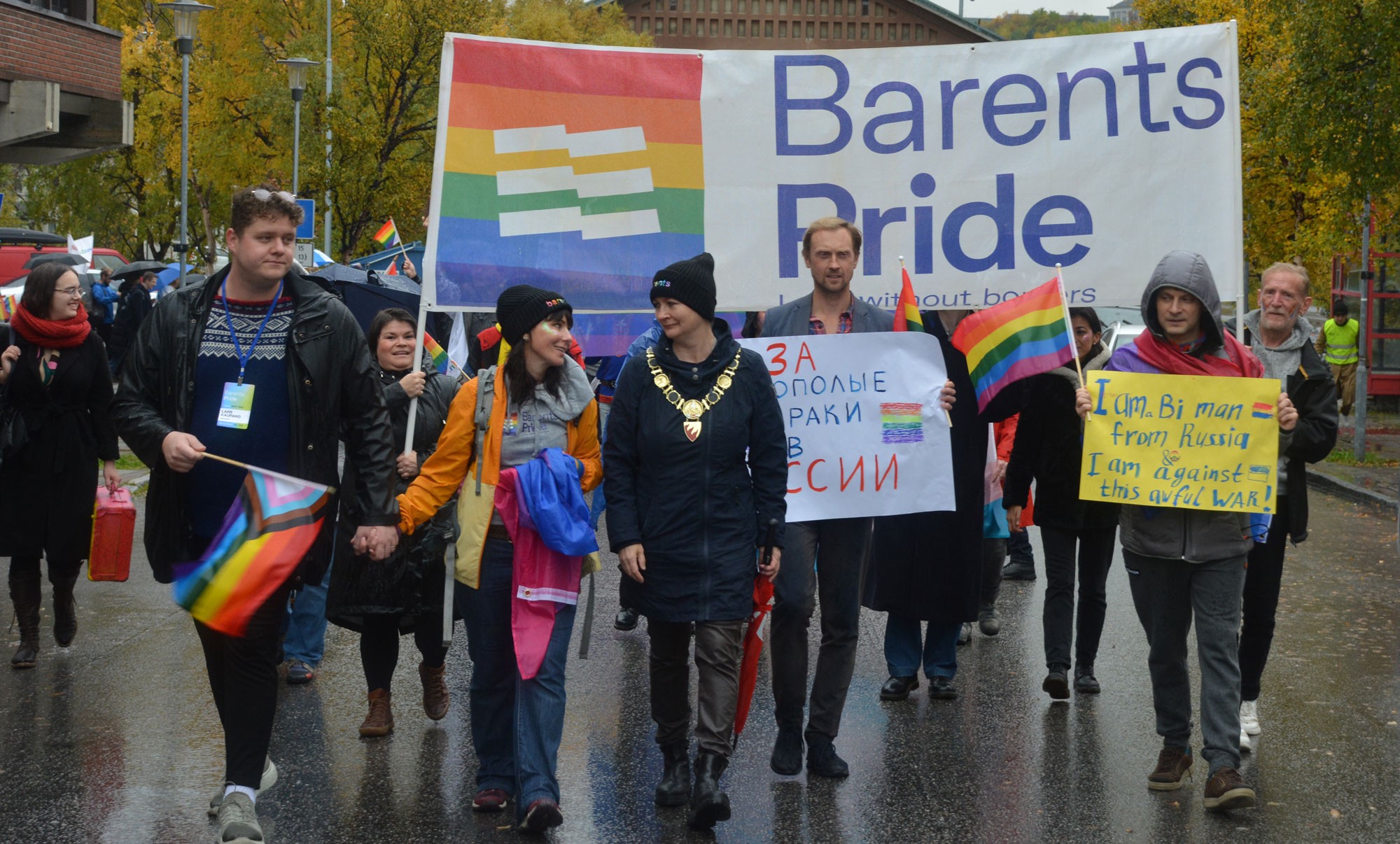
This is not only a celebration. It is a protest. Against war and repression, explains Valentina Likhoshva, who travelled from Moscow to Norway to take part in the Barents Pride.
The first winter frost is normally coming to Kirkenes in mid September. But the north Norwegian town located on the border to Russia did not feel any freeze this weekend as a significant group of Russians came to town to join the annual queer event.
It is the 7th time that Pride was held in Kirkenes, the town located only few kilometres from the border. It was established in 2017 as a meeting point for talks and celebration between Norwegians and Russians.
But this year’s Pride was special and more important than ever before, Valentina Likhoshva underlines. In a time of war, more than 40 Russians had crossed the border to attend.
Valentina has been among the organisers of the event since the start. Over the years, the situation has become more and more difficult, she explains.
“Times are dark for queer people in Russia today. We are declared criminals and sick people, because a few people decided so. A very big part of our society has been deprived the right to live a happy life, even only a life.”
Valentina and her fellow Pride participants don’t fit in Putin’s regime and its ideology of “traditional values” and arch-conservative patriotism. And the war against Ukraine has made the situation even worse.
According to the activist, many of the Russian attendants were concerned that Norwegians would actually not welcome them anymore.
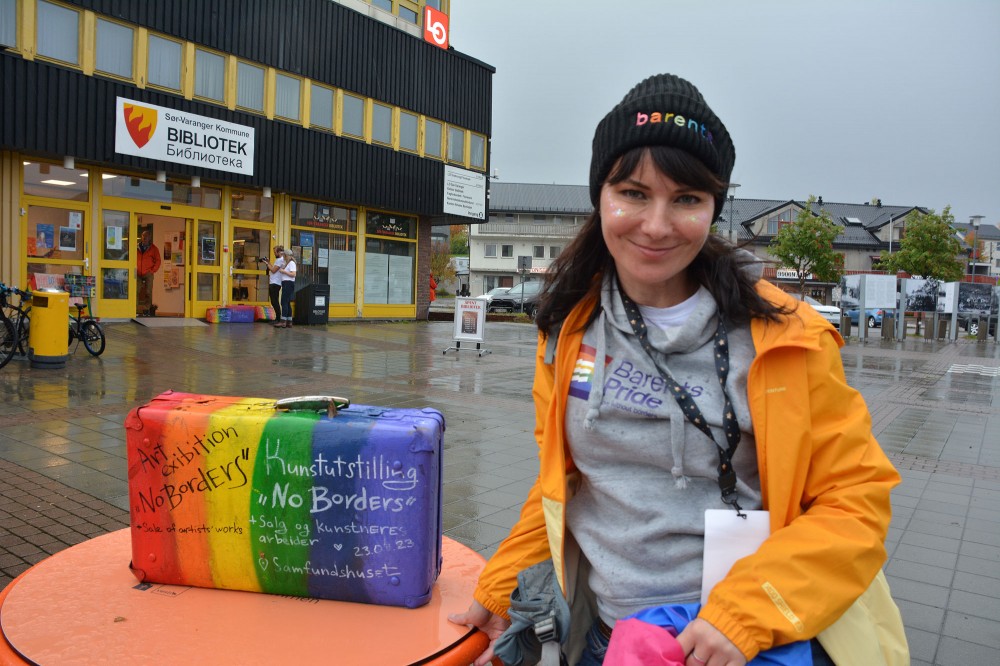
But this year’s Pride was special and more important than ever before, Valentina Likhoshva underlines. In a time of war, more than 40 Russians had crossed the border to attend.
Valentina has been among the organisers of the event since the start. Over the years, the situation has become more and more difficult, she explains.
“Times are dark for queer people in Russia today. We are declared criminals and sick people, because a few people decided so. A very big part of our society has been deprived the right to live a happy life, even only a life.”
Valentina and her fellow Pride participants don’t fit in Putin’s regime and its ideology of “traditional values” and arch-conservative patriotism. And the war against Ukraine has made the situation even worse.
According to the activist, many of the Russian attendants were concerned that Norwegians would actually not welcome them anymore.
“When you live in Russia you have this image that people from other countries will never forgive you for this war, the victims and all that is happening now. On the one hand, you are enemy of your own government and there is no chance for you to have a normal life. On the other hand, the people that have come here are not only afraid of police in Russia, that the FSB will come, but they were also afraid of how people in Norway will react.”
This year’s Barents Pride included not only a parade down the streets of Kirkenes, but also concerts, debates and workshops. And a church service.
“There was a female priest there, rainbow flags, and everything looked like in a fairytale. When I looked at the people in church yesterday; you would not imagine the experience.”
“The same with the town mayor in the parade. She talked with people. Without any security, and she supported us. I think that when I will tell other people about Barents Pride, many will not believe that this could be now, in this time.”
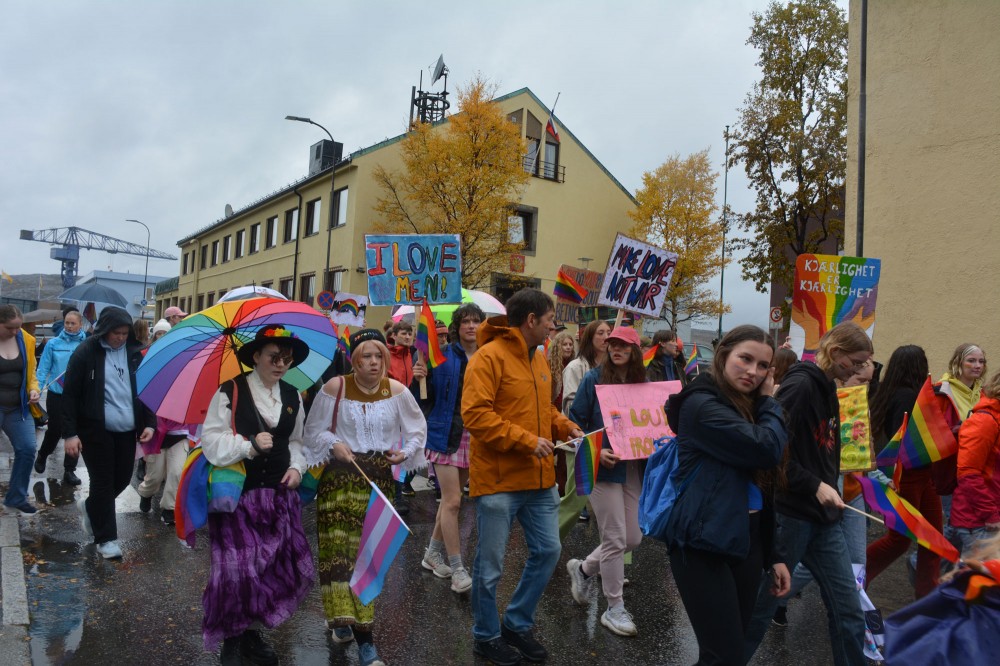
For the Russian participants, the Pride offers a lifeline to the world.
“It is so important to feel that you are human again. And that has been possible here in Kirkenes,” Likhoshva underlines.
But not everyone was able to attend, and that was not only because of the increasingly strict visa and cross-border regulations.
“Some of the people that were invited did not come, not because of visas or police, but simply because they do not have energy to go. They told me that if they will see now normal life they will be destroyed. It is too painful for them.”
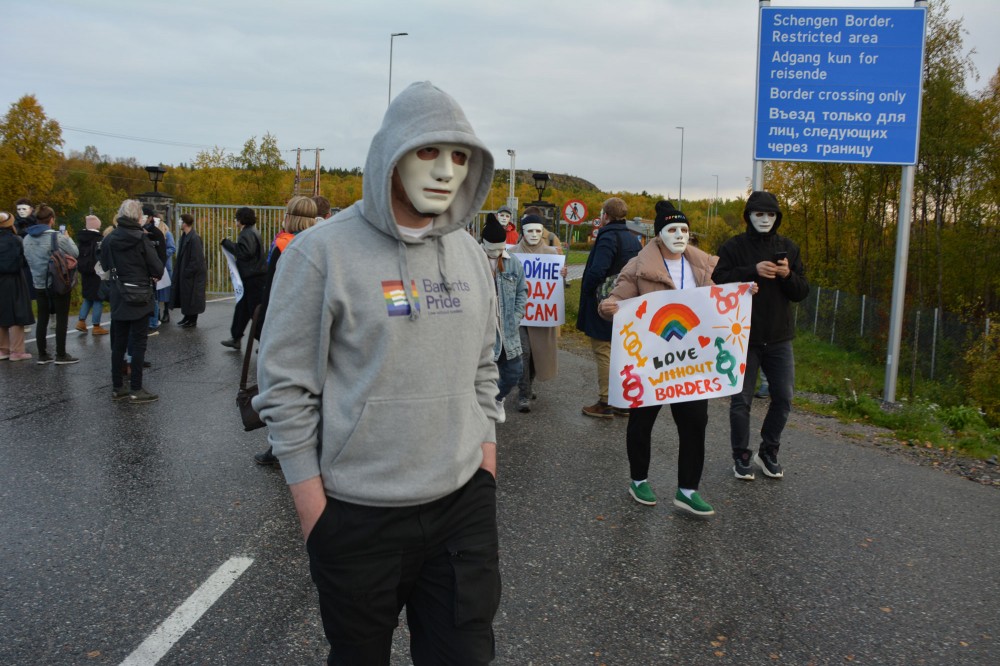
According to the organisers, the Russian participants in Barents Pride this year came not only from the Russian North, but from major parts of the country.
“The Barents Pride is unique for all of Russia. Today, there are no other places where you can speak, be visible and where you can meet with other activists,” Likhoshva argues
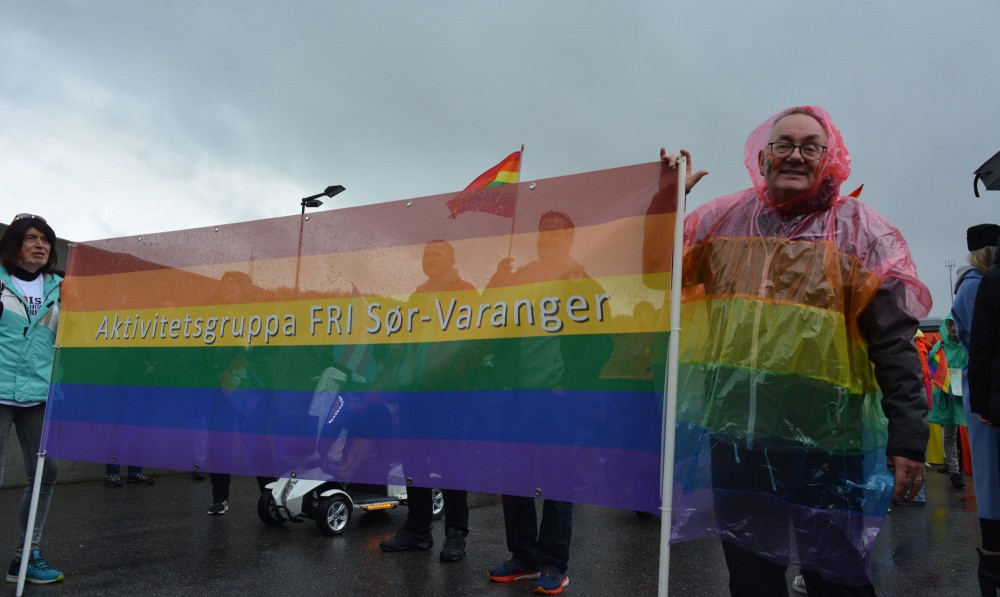
All of the attending Russian participants returned back to Russia after the event. Among them also Valentina Likhoshva
She admits that she is afraid
“Like many of us, I am afraid. But what can we do? We do not have any other chance. I cannot be silent, I cannot live like that.”
She constantly fears reactions from the police.
“Every morning I am waiting,” Valentina says.
But at the same time there is also hope.
“I see also something positive in Russia today, and I am sure there is hope. I see a lot of brave and clever people around me. I see good people who continue to help each other and support each other even though the risks are high for them. If we have one tyrant, that does not mean that all people are like him. That is why I continue to stay in Russia. I am not going anywhere,” says Likhoshva.
“These times will pass. Now we must help each other. We will count our victims, we will take care of each other. And tomorrow and forever we will remember everybody that did not turn their back on us, the ones that stood together with us.”
Related stories from around the North:
Canada: Indigenous LGBTQ issues discussed at inquiry into violence against Indigenous women, in Northern Canada, CBC News
Finland: First Finnish ‘Ski Pride’ in April, Yle News
Sweden: Arctic hockey team to wear rainbow jerseys all season in support of LGBT rights in sport, Radio Sweden



